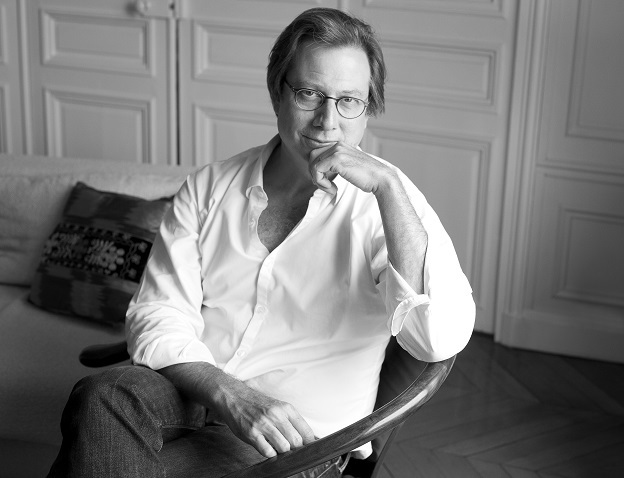David, Your father did not very much like competitions….
That’s not true. He hated them. Let’s be clear….
And that’s why you and your brother Michael always wanted the Shanghai Isaac Stern Competition to become special. So, what is special about it?
There are two challenging aspects: The first is, how to get the pure competition elements out of the competition. The second is to allow each participant to express herself or himself as completely as possible. We have to use the word competition because Shanghai wanted to have a competition. My brother and I came up with all kind of alternative titles, but this was not acceptable. So, why did we do it? First of all, my father and Shanghai had a very close relationship, and the residues of it can still be witnessed today. Secondly, he will turn 100 in 2020, and it’s important to remember what he believed in. So, this competition was an opportunity for us to set up something on a large scale and to make it work. Thirdly, my father never said ‘no’ to a challenge. If you said to him ‘xy’, he would say, « let’s try z ». I think he would applaud our attempt. He would criticize us, but he would also appreciate what we do.
But how can you take out the competition elements?
My message to the participants and to the jury is that we are not looking for a typical competition winner. I tell the young musicians: « Don’t play it safe, don’t play like in a competition, play like in a performance, take chances. » We have a jury that will like people trying something and not having in mind only to play perfectly. And I do not stop telling the jury that there is a supplementary person in the room, and that’s my father. He is listening. Everybody knows which kind of musician he was and which kind of musician he wanted to help. I told the kids: « If one of you wins First Prize, it does not automatically mean that he will have a career. And if you don’t win, this does not mean that you will not make a career. This is not a destination, but part of a journey. »
Furthermore, it is the sheer length of the competition which makes the difference. It is so long, with so many performances, aspects and rehearsals that you forget about the pressure of a competition. The feeling is more the one of a festival. Many musicians who did not win told me that they had a very positive impression, that they learned a lot while being here.
We also want a complete transparency. All the judgements of the jury are posted. If any jury member inflates or deflates a number, it will be glaringly obvious.
Moreover, we have talkback sessions which are very important. We talk with the musicians who do not get in the next round, we tell them what we did not like and how they could improve. That makes us very responsible. A jury member cannot just say: « I hate what this musician did », and walk away. No, you have to talk to her or to him and say what you did not like. The message is: « I tell you that because I want to help you and not to destroy you. » All this creates a very different atmosphere for a competition.
You pass a driver’s license and then you start learning how to drive. This is not a driver’s license examination, it’s life. It’s a performance. And like in any other performance, musicians are judged, by the audience, by the critics, by the orchestra, by other musicians, by the managers. We all have this pressure. It’s part of the business. We have to get away from the idea that a competition is not a concert. It is a concert!
Is there any follow up after the competition? Do you keep in touch with the winners?
Well, our winners had concerts with the sponsoring orchestras, but, honestly, we are a new competition and I am new in this business. I think that I will have to devote myself much more to the winners of this year and to those of 2016. Because this is a family network, and we have to take care of it. This is, so far, our weakest point, but we are determined to improve. It’s not only about getting them concerts, but they should feel comfortable to come back to us and to ask for advice. Those people carry the name of my father on their sleeve, and that means that they are or part of a family.
Mayu Kishima has given wonderful concerts conducted by my brother, but we talk to her regularly, advise her on different aspects of musical life – not only the career –, and so we create a very special relationship. But we need to do more, also for the other winners. We have to serve my father’s name, we have to be there for him and he will be with us.
So, your father is in a way still present in your life, maybe with a raised finger?
My father was not so strict. He did not want us to become musicians, because he was afraid of the difficulties one can have to face. But, once we decided to become musicians, he was very supportive, and critical. Even very critical, but not disciplinarian. He had his standards, and one thing he did not do, was compromise. That’s the level I want to respect.
So, what did I learn from him? How to listen, how to think, how not to stop thinking, how to engage into playing music with all the philosophical questions behind. Yet, he was not part of our education, he was not often at home. In a way it was better, because we did not come around because papa was behind, but because we were ourselves. I was very far away from what he thought. He hated period instruments, he hated all this period instruments situation, period! He didn’t like anyone coming around and telling him how to play Bach and Mozart. And I can understand it. He had enough sensitivity to make those composers different from his Mendelsohn and his Bartok. But period instruments are part of my life since the early Nineties. So, we agreed to disagree. And it was good for me to get away from New York and from my father’s sound world.
So, to come back to your question: I am not doing this event in fear, but in respect and in love.
In Paris, with Opera Fuoco, and in other places you focus on opera. What is the situation of the voices today? I have the impression that, compared to what we had in the Sixties and Seventies, the opera world has a lack of characteristic voices.
We are coming out of a really difficult period, where the stage director was the king.
You think it is finished?
It is finishing, because people are tired of it. Of course, the acting has gotten much better on stage. But with the staging becoming the most important element, people started listening to operas through their eyes instead through their ears. Stage directors choosing the singers was not a good thing. On the other hand, the baroque scene brought singers to the attention of the audience who could fabulously articulate, but very often at the expense of the voice itself. So, where are we going? We are coming back to a healthy singing, where the voice is becoming more important again. There are still great singers in the world. Will there be another Pavarotti, that’s another question? I expect another period of great singers to come. Because people are just tired of all those crazy stagings which were not good for music.























